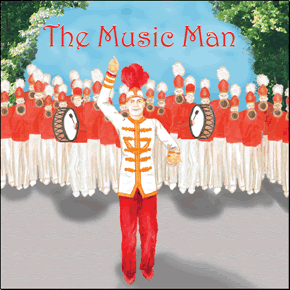
Happy 4th of July. In celebration of our nation's 230th birthday, I have posted an article on my blog which I originally penned in July of 2005,
Cornerstones of our American Republic. In it, I am offering nine key Biblical principles undergirding our American system of government. I hope you find it worth your while. If you would like to read this article in PDF form, or print it out,
click here.
1) Transcendence (authority):
God is above and independent of the material universe. He alone is uncreated. All else is created. Ultimate power rests with Him and Him alone. No Pope or priest (save Christ the High Priest) stands between men and God. Such clear, Biblical thinking supplied the faith and courage for so many Reformers to stand up to the ecclesiastical authorities of their day. Likewise, kings too began to find their "divine right" of governance challenged by common folk. Individuals began to believe that they could appeal directly to God to remedy their grievances. If we believe that governments and rulers exist at the pleasure of God (Romans 13:1), then we have only to fear offending God, and not men. And God is so much more patient and merciful.
Likewise, with the belief that the Holy Scriptures are the inspired and revealed Word of God (sola scriptura), and thus the only reliable guide for life, we have His source for wisdom and understanding, and need not rely upon the fancies of men for solutions to our problems. The attempts by many to remove God and His Word as the centerpiece of our culture is far more than symbolic. When God is gone from our American community, from our marketplaces, and from our halls of government, tyranny can only be just around the corner. Without the knowledge that God is looking over their shoulder, men will never wield power justly.
2) Self-Government:
Self-government is a complex idea that contains several components. Man was designed to function under God's headship, or authority, and manage His creation (Genesis 1:26, 28). As a vice-regent, man must learn how to internally govern himself under the rules established by God. God did not make man to be a puppet, but rather gave him the ability to make choices. Thus God fashioned the opportunity for failure.
Self-government begins internally within each of us. Several generations after Israel took up residence in the promised-land, the Israelites grew restless, not wanting the self-governmental approach that God had designed for them. They demanded that He give them a king "like the other nations."
During the Reformation, people began to yearn for self-government. This yearning manifested itself through changes in church life. Self-governing, autonomous groups began to form. New leaders emerged, unattached to the old structures. Over time, freedom in church life gave rise to a desire for freedom in civil life. The clearest example is found in the Pilgrim/Puritan church communities that came to the New World and soon formed self-governing towns.
Government comes in a fixed quantity. There is only so much of it to go around. The less successful we are at personal, internal self-government, the greater external government is needed. The explosion of government is proportional to the gradual breakdown of personal, internal self-government amongst our own citizenry. Every time we fail to manage our own lives properly, we lose a little bit of freedom. To keep our freedom, we must practice personal, internal self-government, and strive to safeguard the idea of self-government in our culture.
3) Liberty of Conscience:
Martin Luther, after creating enormous upheaval in the church by proclaiming "the just shall live by faith," was called by church and civil leaders in 1521 to recant his position. Standing before dignitaries of both state and church, Luther proclaimed,
"Unless I am convinced by Scripture and plain reason—I do not accept the authority of the popes and councils, for they have contradicted each other—my conscience is captive to the Word of God. I cannot and I will not recant anything for to go against conscience is neither right nor safe. God help me. Amen."
Countless Christian brothers and sisters, numbering in the thousands, perished for their faith. Many were burned at the stake, drowned in rivers, tortured on the rack and by other means, and otherwise suffered greatly. They all died premature, painful deaths for failing to recant their faith. Each of these brave martyrs meeting their early demise contributed to the rising swell of the idea of liberty of conscience.
The first amendment protects our freedom of worship, our freedom to speak our mind without fear of reprisal, our freedom to publish news, information, and even ideas, and the freedom to assemble and discuss politics or any other subject. The first amendment is a direct result of lessons learned from the Reformation, and was created, not to keep God out of the public arena, but to keep the government from dictating to our citizenry what to believe, and what church to attend.
4) Individuality:
God's creation sings with the theme of individuality. No two snowflakes are identical. No two trees, no two forests, no two creatures, no two nations, no two geographies, no two people share identical lives. Even identical twins lead different existences. This wonderful principle carries into church life as well. When the church gathers, each individual has something unique to bring (I Corinthians 14:26).
The scriptures teach that we are "... fearfully and wonderfully made ..." (Psalm 139) in the image of God (Genesis 1:26). The principle of individuality emerged as one of the key ideas springing from the Reformation of the Church. As history pressed forward through time, toward America's unique brand of liberty, God's grace permitted leaders and founders to understand that self-government can only succeed where the individual takes priority over the group. Thus in our nation, historically, civil government has existed to serve the individual, and not the other way around. In our land, the One takes precedent over the Many.
The principle of individuality interconnects seamlessly with the principle of liberty of conscience. Rights must be seen as a gift from God, not as a grant of the state. For if the state grants rights, the state can also take them away. But if God is the grantor, then He is always our ultimate court of appeal.
5) Moral Law:
God's creation functions in an orderly fashion. Planets do not go flying off into the cosmos but rather stay in their assigned orbits around the sun. Seasons change at the appropriate time of year. The ocean's tides are predictable as is the sun's rising and setting each day. All things function according to a divine order—a perfect, governmentally maintained dance through time and space.
Likewise, the family of man has been designed by God to function in an orderly fashion. God made us male and female and gave us specific instructions and "equipment" for reproduction. He also crafted the family within a certain, identifiable framework. Children can be brought successfully into functional adulthood far more effectively when His patterns are followed. He also gave us clear commands for living and relating together. If we follow His design standards—His rules—we have a much better opportunity to live the peaceable, productive lives which He intended for us to live.
Unlike the planets and orbs in the universe, twirling about with clockwork precision, humankind has been granted the freedom to choose. Free will eliminates precise, perfect living. Government is not forced upon us from the external, but rather expected from us through the internal. The expectation of our Maker is for us to follow His prescription for living. The rules, guidelines, commandments, whatever we elect to call them, are out there. They can be located in His holy Word, the Scriptures. We can learn them and seek God to help us heed their wisdom, or we can reject them if we choose.
Our nation's founders understood the utter necessity of moral law functioning within our young, fledgling society. With the possible exception of ancient Israel, our nation, formed out of the crucible of the Protestant Reformation, has had the most blessed beginning, and a greater opportunity for long-term success, than any other nation in history. At the outset, our families, our voluntary associations, our governments at all levels, were moral institutions.
6) Covenantalism:
Before departing the Mayflower, the Pilgrims drafted a mutual agreement for themselves, a covenant representing their individual commitments for self-government under the laws of God. They called their agreement the Mayflower Compact. Thus began the rich history of covenantalism in America.
The story of covenant-making can be traced to the first narrative of human experience found in the Holy Scriptures. We learn (in Genesis 3) of Adam and Eve's disobedience toward God. We also learn that God did not abandon our first two ancestors to be eternally lost through separation from Him. Instead, He made Covenant to provide them with a Savior (Genesis 3).
Covenants are binding instruments. And because of sin's damage to the human race, God alone is the covenant keeper. God's covenant with fallen man is seen repeatedly throughout the Holy Scriptures. In fact, the Holy Scriptures are divided into the Old Covenant (Testament) and the New Covenant (Testament). The entire essence of God's revelation to humanity through the Holy Scriptures is wrapped in His covenantal promises. In The Old Covenant, God repeatedly binds Himself through promises to His chosen people, the Israelites. In the New Covenant, God binds Himself personally to all those (Jew and Gentile alike) who trust in His provision through His Son, Jesus Christ.
Some consider The Declaration of Independence to be our nation's charter. It is the essential historical document creating, founding, and forming our nation. And our Constitution is a contract, a compact, an agreement defining and detailing how we have collectively bound ourselves together in self-government. Some, including thirty-sixth President Lyndon Baines Johnson, considered our Constitution to be a covenant.
The term "covenant" is a word fraught with great potential for misunderstanding. What is important to understand is that our early Christian forbears were people who possessed a rich awareness and appreciation of Biblical covenant, and endeavored to live and govern themselves under the covenant umbrella as they understood it.
Present-day Americans—even many Christians—fail to grasp the meaning of covenant and its importance in our lives and heritage. An in-depth study of Biblical covenant is not the purpose of this brief primer. But understanding the concept of covenant is absolutely essential for every Christian. Consider how you might invest some of your time to explore this important theme of Scripture.
7) Separation of Powers:
While the Israelites were mired in their wilderness experience, Moses took godly counsel from his father-in-law Jethro (Exodus 18:13-26), and divided his responsibilities for government among other leaders. He said,
"... Choose some wise, understanding and respected men from each of your tribes, and I will set them over you." Deuteronomy 1:13
No one individual possesses the moral character or strength of soul and body to bear alone the responsibility for governing a nation. Moses understood this weakness in man, because he struggled with it himself.
Our founding fathers likewise understood the pitfalls and hazards of concentrating power in one man, or one small group of individuals. They too determined that power had to be spread around, and even set at odds with itself, creating a tension between governing spheres. God alone can balance and wield power without compromise or selfish ambition. Consider this Scripture:
For the LORD is our judge, the LORD is our lawgiver, the LORD is our king; it is he who will save us. Isaiah 33:22
Look at it this way:
- For the LORD is our judge,
- the LORD is our lawgiver,
- the LORD is our king;
Friends, here we have the three branches of our own nation's system of government:
- The Judicial Branch
- The Legislative Branch
- The Executive Branch
God alone can handle all of this power within Himself. Mortal men cannot. Our founders understood the necessity to separate the powers of government into opposing, tension producing spheres. They did this to keep the powers of government in check.
Ancient Israel also experienced the separation of powers.
- Priests tended to the law.
- Kings ruled.
- And prophets exercised judgment.
The powers of civil government in our nation are spread widely, not only at the national level, but at state and local levels as well. The United States is a collection of individual, self-governing, state units. When our nation was formed, the states freely bound themselves together to form a single unit which came to be known as the United States.
8) Republicanism:
Republic is a powerful word, one we probably don't ponder enough.
"I pledge allegiance to the flag of the United States of America, and to the Republic for which it stands, one nation, under God, indivisible, with liberty and justice for all."
When we stand at public events, face the flag, put our hand over our heart, and pronounce—taking scarce time to consider their meaning—those famous words, we do not pledge allegiance to a monarchy, a plutocracy, a democracy, or a socialist system. We pledge our allegiance to a republic.
What exactly is a republic anyway, and what differentiates it from other types of government? Briefly, I will attempt to explain it to you the best that I can.
There are three essential components to our American republic.
- First, the people hold the power. This is the democratic component—the "we the people" element.
- Second, the law is supreme over all, even over those exercising civil authority. Just as we vote people into power, we can also vote them out. If an official breaks the law, we can prosecute them just like any other citizen. We are all subject to the Constitution and other laws of the land—national, state, and local.
- Third, we elect individuals to represent us in government, to make decisions for us. So another principle—the principle of representation (or federalism)—is also in effect.
Here's what James Madison wrote about the idea of a republic in The Federalist # 39.
"... we may define a republic to be ... a government which derives all its powers from the great body of the people, and is administered by persons holding their offices during pleasure for a limited period, or during good behavior."
Consider what could potentially happen if we existed as a true democracy. Anytime the majority of the people wanted to change the rules, they could. Momentary, seasonal, misguided whims could quickly turn the direction of an entire nation. But sometimes the majority is dead wrong. Sometimes the minority of the people are the ones who possess the wisdom. The term for this potentiality is called "the tyranny of the majority." Our founders understood the danger, and this is why our nation is a republic and not a democracy.
Israel at the time of the Judges, before they demanded a king, was a Republic. The idea of a republic is deeply profound. How sad that its rich meaning is so infrequently considered.
9) Federalism:
The concept of federalism is too complex of a topic to examine in a short few paragraphs. You may need to do some "dot-connecting," so read and ponder carefully.
Federalism is, at its core, a Biblical principle. When Adam chose to disobey God's command, he bound the entire human race to himself, and to his decision. Although he most likely did not understand the full implications of his actions, he was acting not only on his own behalf, but ours as well. Likewise, when Christ came and died for our sins, He too bound Himself to all who would receive Him, representing us to God through His righteousness. Both Adam—the first man—and Christ—the second man—(I Corinthians 15:45-47) represented the human race, and God counted their singular actions and decisions as applying to us. In the words of the Puritan Primer: "In Adam's fall, we sinned all."
Thus, Biblical federalism, at its core, is the principle of representation—the principle of many being bound by the decision(s) of one. When considered carefully, we see this concept spilling over into almost every area of our lives. We can see it in our families, in our employment, in our church lives, as well as in the civil sphere.
 Former House Speaker Newt Gingrich recently penned an article titled A Third World War. He writes that we are in "a war that pits civilization and the rule of law against the dictatorships of Iran and Syria and the terrorist groups of Hezbollah and Hamas that they support. It is also a war that pits civilized nations against Islamic terrorist groups around the world, including, most significantly (but not exclusively), the al Qaeda network." Gingrich posits that we have entered World War III.
Former House Speaker Newt Gingrich recently penned an article titled A Third World War. He writes that we are in "a war that pits civilization and the rule of law against the dictatorships of Iran and Syria and the terrorist groups of Hezbollah and Hamas that they support. It is also a war that pits civilized nations against Islamic terrorist groups around the world, including, most significantly (but not exclusively), the al Qaeda network." Gingrich posits that we have entered World War III.






